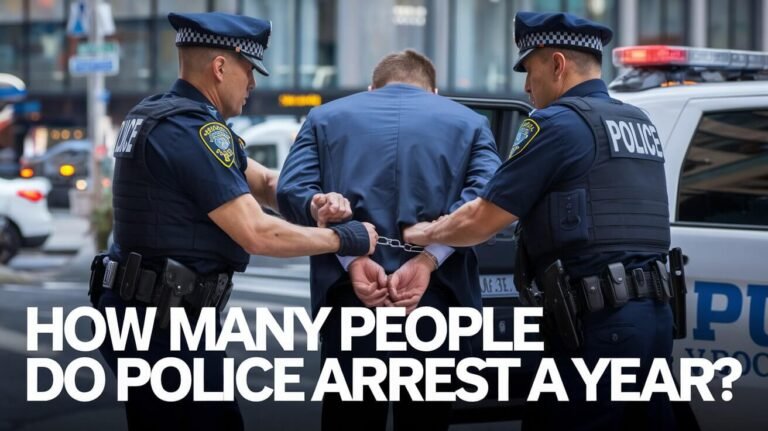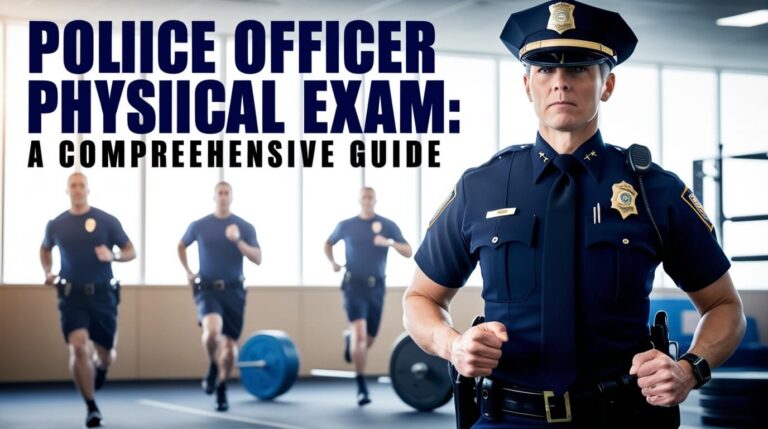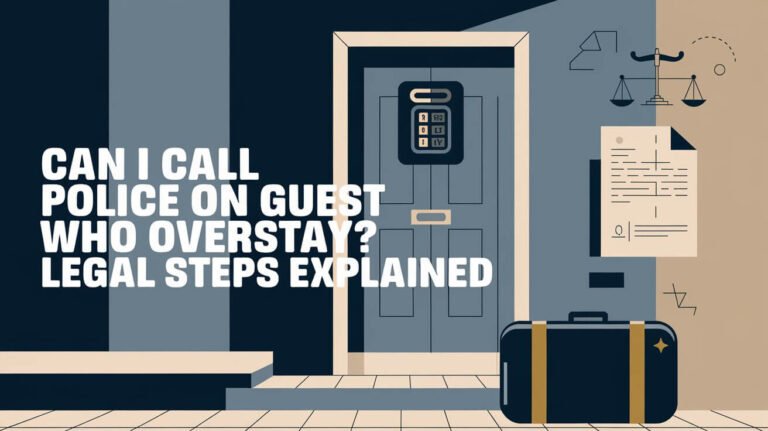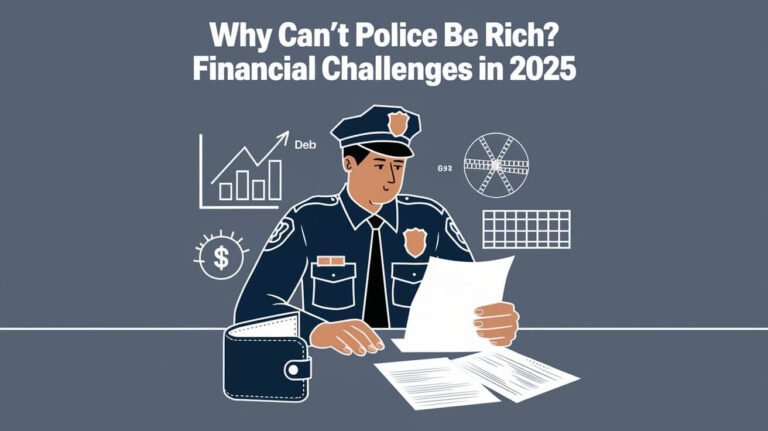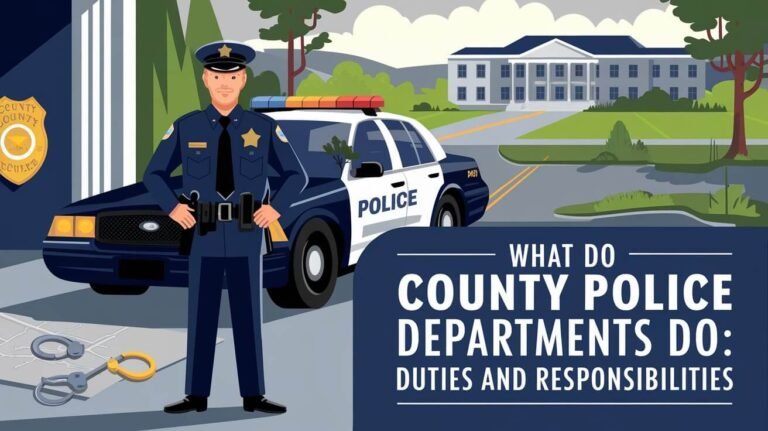Do You Have To Identify Yourself To The Police? Laws Explained
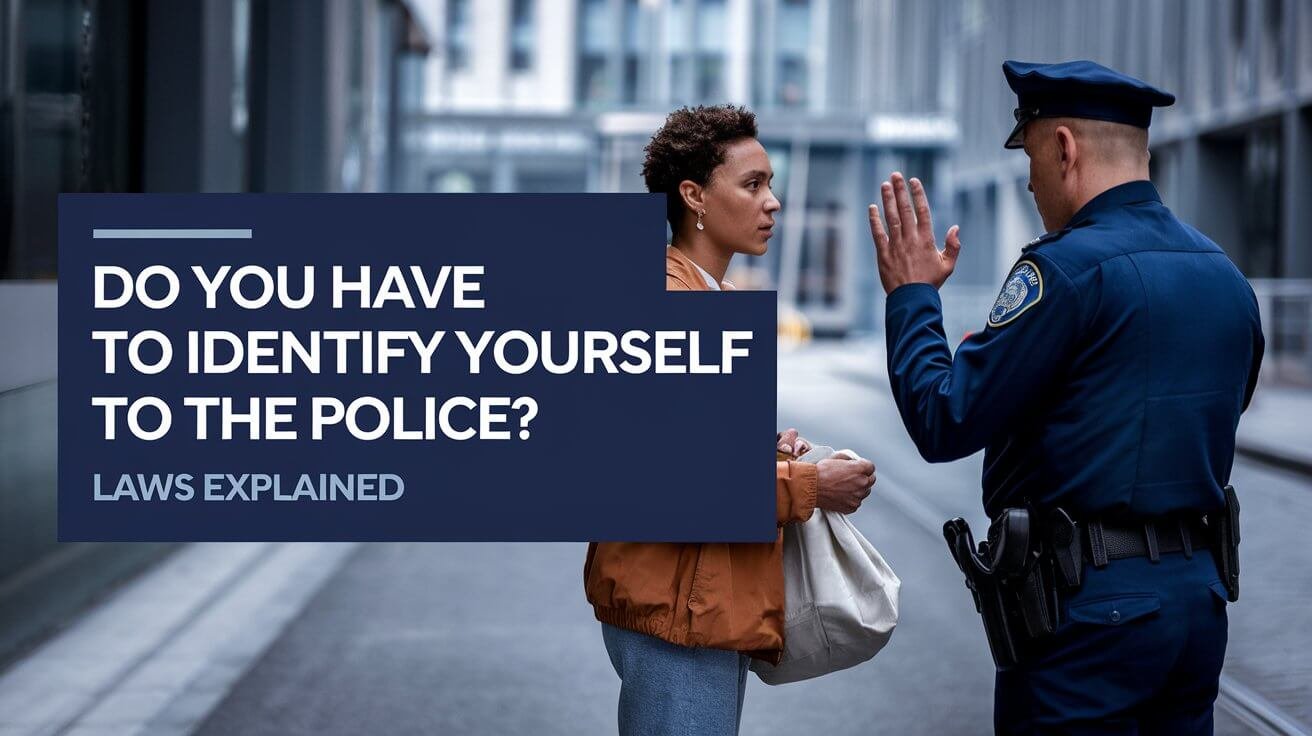
Police encounters can be stressful. Knowing your legal rights is key. You usually need to give your name, address, and birthdate when stopped.
Law enforcement officers should try to calm the situation. But, staying calm and knowing your rights can help a lot.
What you must do varies by state. Some states have laws that require you to identify yourself if there’s a reason to suspect a crime. But, drivers have to show a valid driver’s license and insurance at traffic stops.
Understanding police encounters well is important. Knowing the law and your rights helps you deal with police in a good way. This can make the justice system more open and fair.
Legal Requirements for Identification During Police Stops
Each state has its own rules about what you must do when stopped by police. In some places, you might need to give your name, address, or other details. But in California, you don’t have to show ID unless you’re being legally held.
State-Specific Identification Laws
Knowing your state’s ID laws is key. For instance, in California, not showing ID when stopped for DUI can lead to more charges. But, passengers don’t usually need to show ID unless there’s a special reason.
Driver’s License Requirements
Driving without a valid license in California breaks the law. Not showing your license or insurance card can cost you about $250. Or, it could mean up to six months in jail and a $1,000 fine if it’s a misdemeanor.
Consequences of Non-Compliance
Not following ID rules can have serious penalties. In California, driving with a suspended license can mean jail time and a big fine. Also, giving fake ID to police is a crime, leading to fines and jail.
| Offense | Potential Consequences |
|---|---|
| Driving without a license | Infraction: $250 fine Misdemeanor: Up to 6 months in jail, $1,000 fine |
| Driving on a suspended license | Minimum 10 days, maximum 6 months in jail, $1,000 fine |
| Providing false identification | Misdemeanor: Up to $1,000 fine, 6 months in jail |
Your Basic Rights During Police Interactions
As a citizen, you have several fundamental rights when interacting with law enforcement. The right to remain silent, the right to refuse searches, and the right to leave are essential protections you should be aware of.
The right to remain silent is a cornerstone of your legal rights. You are not obligated to answer questions about your activities or destination beyond providing basic identification. Invoke your right to remain silent if you feel uncomfortable or if the officers’ questions seem inappropriate.
Also, you have the right to refuse searches of your person or belongings, except for limited pat-downs for weapons. Officers may continue to question you, but you can maintain your silence. If they do not have a valid warrant, you can clearly state that you do not consent to the search.
Further, you have the right to ask the officers if you are free to leave. If they indicate that you are, you can calmly and politely depart the scene. But, if they state that you are not free to leave, you should comply with their instructions but continue to assert your rights.
Understanding and exercising these basic rights, you can protect yourself. This ensures that your interactions with law enforcement proceed in a lawful and respectful manner.
Do You Have To Identify Yourself To The Police
When you talk to the police, how much you must share can change based on the situation. Usually, you must give out some basic info. But, you can choose not to share more personal stuff.
Mandatory Information to Provide
Police often ask for your name, address, and birthdate. This info helps them check who you are and make sure you’re following the law.
Optional Information You Can Withhold
You don’t have to tell the police everything. You can keep your plans, where you’re going, and other personal details to yourself. It’s okay to say no to questions about these things.
Special Circumstances and Exceptions
Some cases have different rules for giving out your ID. In North Dakota, you must tell the police who you are if they think you might have done something wrong. But in Maryland, you don’t have to give your name if asked. Also, if you’re suspected of driving under the influence, refusing a test can lead to losing your license, even if you don’t share more info.
Police Detention vs Casual Encounters
Knowing the difference between police detention and casual encounters is key. Police can hold you if they suspect a crime, have a warrant, or think you know something. Casual encounters are different because you can ask if you’re free to go.
There are three main types of police encounters:
- Consensual Encounter: In a consensual encounter, you can leave, not identify yourself, or not talk to the officer.
- Investigatory Stop: During an investigatory stop, you can’t leave or not identify yourself. But, you can choose not to speak. Police need reasonable suspicion for this.
- Arrest: To arrest, police need probable cause, more than reasonable suspicion. They can arrest without a warrant for some crimes.
It’s vital to know your rights in these situations. You shouldn’t fight arrest but can stay silent and ask for a lawyer. Talking to a lawyer can protect your rights when dealing with police.
Rights to Record Police Interactions
As a citizen, you have the right to video record police encounters in public spaces. This right is a key way to document any misconduct or abuse of power. It’s important to know the legal limits and best practices for this right.
Legal Boundaries of Recording
The laws on recording police vary by state. In some states, like Virginia, you can record if you’re part of the conversation. Bystanders can also record as long as they don’t interfere with the police.
Always be clear about your recording intentions. Say you’re recording and keep your hands visible to avoid misunderstandings. Police can’t take your recordings without a valid warrant.
Best Practices for Documentation
- Start recording as soon as possible, capturing the initial encounter.
- Narrate the time, date, location, and any relevant details on the recording.
- Maintain a safe distance and avoid obstructing the police officers.
- Be respectful in your language and body language, avoiding any confrontational behavior.
- Securely back up your recordings in case they are deleted or confiscated.
By understanding your rights and following best practices, you can effectively document police encounters and protect your legal rights through responsible video recording.
Refusing Searches and Pat-Downs
The Fourth Amendment of the United States Constitution protects you from unreasonable searches and seizures. This means you can say no to searches of your person or property, unless there’s a good reason or a search warrant. But, police can do a quick pat-down for weapons if they think you might be dangerous.
If an officer tries to search you without your okay, say, “I do not consent to a search.” Don’t fight back, as it could make things worse. If they search you despite your refusal, follow their orders but keep saying you don’t consent.
Car searches are different. Police can search your car if they think it might have evidence of a crime. To say no to a car search, say, “Officer, I do not consent to a search of my vehicle.” But, they can search it if they have a good reason or a warrant.
| Consent to Search | Pat-Down for Weapons | Fourth Amendment Rights |
|---|---|---|
| You can refuse consent to searches of your person or property, unless officers have probable cause or a valid warrant. | Police can conduct a limited pat-down search for weapons if they have reasonable suspicion that you may be armed and dangerous. | The Fourth Amendment protects you from unreasonable searches and seizures by the government. |
De-escalation Strategies During Police Stops
Dealing with police can be tricky and risky. But, using the right de-escalation methods can keep everyone safe. By focusing on clear communication, body language, and staying calm, you can make police stops safer for both sides.
Verbal Communication Tips
- Stay calm and avoid using harsh words. Speak clearly and politely to ease tensions.
- Let the officer know your intentions and rights. This shows you’re following the law while standing up for yourself.
- If you’re feeling nervous or scared, say so. This can help the officer understand you better and change their approach.
Body Language and Positioning
Your body language and how you stand can greatly affect the outcome of a police stop. Always keep your hands visible, avoid sudden moves, and follow orders calmly. Being aware of your body can help prevent things from getting worse.
| De-escalation Technique | Impact on Police Interactions | Statistical Relevance |
|---|---|---|
| Safety Emphasis | Ensuring safety during traffic stops is vital for officers and drivers, with statistics showing a correlation between safer stops and reduced risk of escalation. | Reasonable suspicion requires police to have an objectively reasonable basis for suspecting criminal activity, requiring less than 50% certainty that the detainee has done something illegal. |
| Visibility Impact | Well-lit and visible stop locations are linked to a lower likelihood of violent incidents or misunderstandings during police stops, as per industry reports. | Law enforcement officers can have reasonable suspicion to detain individuals without having probable cause to arrest them. |
| Communication Effectiveness | Clear and concise communication during stops can reduce tension. Studies show a big drop in confrontations with clear communication. | Probable cause is supported by facts indicating an objective belief that the person detained has committed a crime or that a place or item contains evidence of a crime. |
| Behavioral Observation | Research shows that officer training in assessing driver behavior and non-verbal cues improves risk assessment and early detection of threats. | Individuals have the right to remain silent and not answer questions when stopped by the police. |
| Back-Up Calls | Data shows that timely backup calls during high-risk stops greatly improve officer safety, reducing critical incidents. | Drivers and passengers both have the right to remain silent during encounters with law enforcement. |
| De-Escalation Techniques | Using de-escalation training in police protocols has shown promising results in reducing force during stops. Evidence points to fewer escalations with proper strategies. | If stopped by the police, individuals have the right to refuse a consensual search of their vehicle. |
Using these de-escalation techniques, you can make police stops safer and more cooperative. This reduces the chance of confrontation and ensures a positive outcome for everyone.
Vehicle Stops and Identification Requirements
When stopped by police, drivers must show a valid driver’s license, vehicle registration, and insurance. In places like Virginia, new laws limit stops for minor issues. It’s key to have these documents ready to avoid any trouble.
It’s wise to tell the officer you’re reaching for your documents. This makes the stop smoother. Not showing ID can lead to legal trouble, as some places require you to identify yourself during a stop.
| State | Identification Requirements | Penalties for Non-Compliance |
|---|---|---|
| California | Drivers must show their license and proof of insurance during a traffic stop. Passengers are not required to provide ID unless there is probable cause. | Driving without a license can result in fines up to $250 for the first offense and up to 6 months in jail for subsequent offenses or misdemeanor charges. |
| Colorado, Nevada, Ohio, Utah | These states have “stop and identify” statutes, which require individuals to provide their name to the police during a lawful detention. | Refusing to identify oneself can lead to arrest and potentially fines or jail time. |
| Arizona, New York | Officers can demand a person’s name, address, and explanation of conduct if they reasonably suspect criminal activity, but an ID card is not necessarily required. | Providing false information to the police is considered a crime and can result in fines up to $1,000 and/or 6 months in jail. |
Drivers should know their rights and duties during stops to ensure a respectful interaction with police. Being prepared and following the right steps can help avoid legal problems and protect your rights.
Rights Violations and Legal Recourse
If you think your rights were broken by the police, act fast. Write down the officers’ names, badge numbers, and car details. Also, get the contact info of any witnesses. This info is key if you plan to file a complaint.
Filing Police Complaints
To start legal action, file a complaint with the police’s internal affairs or civilian board. They look into claims of police misconduct, too much force, or illegal searches. Make sure your complaint is detailed and includes all evidence.
Documentation Requirements
- Detailed account of the incident, including date, time, and location
- Names and badge numbers of the officers involved
- Contact information for any witnesses
- Copies of any related medical records or photographic evidence
- Receipts or documentation of any personal property that was damaged or seized
Getting a lawyer can also help if you think your legal action was wronged. They can guide you through the complaint procedures and protect your rights.
Mobile Justice Apps and Legal Resources
In today’s world, mobile apps and online resources are key for protecting your rights. The American Civil Liberties Union (ACLU) Mobile Justice app lets you record police encounters. It helps you report any abuse or misconduct.
These apps give you quick access to legal info and support. They empower you to handle tough situations with confidence.
It’s also important to know your local bail fund numbers and legal aid groups. They can be a big help if you’re arrested. By saving these contacts, you’re ready to protect your rights and get the help you need.
- Use the ACLU’s Mobile Justice app to record police interactions and report concerns.
- Save local community bail fund numbers for emergencies, providing a safety net.
- Learn about legal aid organizations and their contact info for professional support when needed.
Using legal aid apps, ACLU resources, and community support empowers you. It helps you deal with law enforcement and protects your rights. By being proactive, you can feel safer and more informed in tough situations.
Search Warrants and Police Authority
Understanding search warrants is key in law enforcement and personal rights. Police need a judge’s signed warrant to search. The search can only include what the warrant says. People can ask for a copy of the warrant to check its details.
But, there are times when a warrant isn’t needed. For example, police can search a vehicle without a warrant if they have good reason to believe it has crime evidence. The Fourth Amendment protects against unreasonable searches and seizures, highlighting the right to privacy.
- Police can hold people if they think they saw a crime, have an arrest warrant, or suspect a crime is about to happen.
- People have the right to stay silent when stopped by police, except for giving their name, address, and birthdate.
- People don’t have to agree to a search and can say loudly, “I do not consent to a search.”
| Offense | Punishment |
|---|---|
| Failure to provide name, address, and date of birth to police in Ohio (individuals 18 years old or older) | Fourth-degree misdemeanor punishable by up to 30 days in jail and/or a fine of up to $250 |
| Failure to provide name, address, and date of birth to police in Ohio (individuals under 18 years old) | Up to a $100 fine and time in a juvenile detention center |
It’s vital to know the legal limits and your rights with search warrants and police power. By understanding these rules, people can handle their interactions with police better. This helps protect their constitutional rights.
Final Verdict
Knowing your civil rights and making sure police are accountable is key to a fair society. This guide has covered the legal side of police interactions, your rights to identification, and how to handle these situations.
When standing up for your civil rights, always think about safety first. Keep records of any interactions, get legal help when you need it, and learn about your local legal education and rights. Community groups and police accountability efforts can offer great support and advice.
Your rights are the foundation of democracy, protecting each person. By staying informed and taking action, you help keep power balanced and respect everyone, no matter their situation.
FAQs
What are the legal requirements for identification during police stops?
You must give your name, address, and birthdate when stopped. The rules vary by state. For example, in Ohio, drivers must show their license.
Not following these rules can lead to arrest and charges.
What are your basic rights during police interactions?
You can stay silent after giving basic info. You don’t have to talk about what you’re doing or where you’re going. You can ask if you’re free to leave.
You also have the right to refuse searches, except for weapon checks.
What information are you required to provide to the police?
You must give your name, address, and birthdate. You can keep quiet about your activities or where you’re headed. But, you might need to share more if you’re a witness or have a warrant.
What is the difference between police detention and casual encounters?
Police can detain you if they suspect a crime or have a warrant. Casual encounters are different. You can ask if you’re free to leave to know what’s happening.
Do you have the right to record police interactions?
Yes, you can record police in public. Some states, like Virginia, allow recording with one party’s consent. Just make sure to say you’re recording and keep your hands visible.
Can you refuse consent to searches of your person or property?
Yes, you can say no to searches. But, police might do a weapon check without asking. If they search despite your refusal, don’t fight back. Vehicle searches need probable cause.
What are some tips for de-escalating police encounters?
Stay calm and don’t be aggressive. Clearly state your intentions and rights. Always keep your hands visible.
If you’re feeling scared, say so. Avoid sudden moves. Be respectful to ease tensions.
What are the identification requirements for vehicle stops?
Drivers must show their license, registration, and insurance at traffic stops. Keep these ready and tell officers before reaching for them.
What can you do if you believe your rights were violated?
Document everything right after the stop. Note officer details and patrol car info. File a complaint with the police’s internal affairs or civilian board.
Get medical help for injuries and keep records.
Where can you find legal resources and support?
Use apps like the ACLU’s Mobile Justice to record and report. These apps offer legal help. Save bail fund numbers and know local legal aid contacts.
What are the requirements for police to conduct a search?
Police need a warrant signed by a judge for searches. The search must follow the warrant’s limits. You can ask to see the warrant.
In some cases, like vehicle searches, police might search without a warrant if they have reason to believe there’s evidence.

